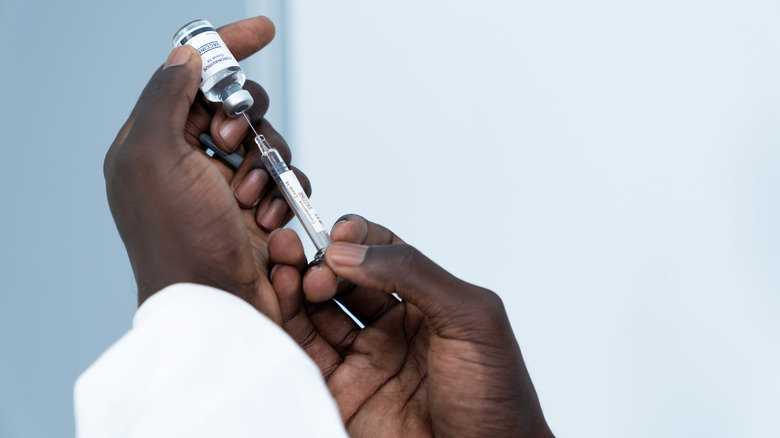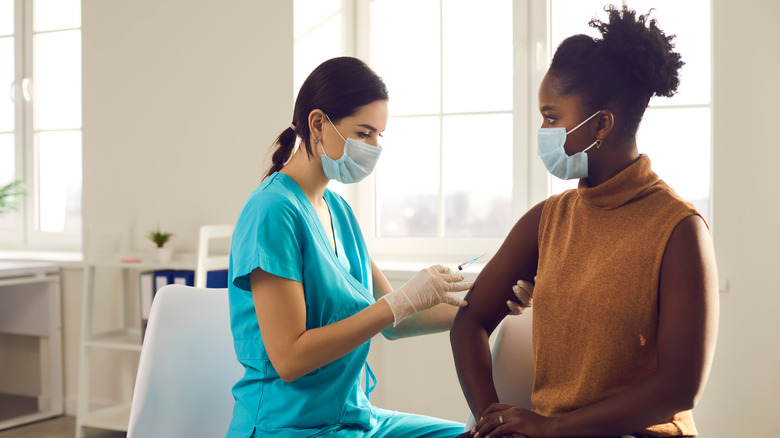New Study Reveals Good And Bad News About COVID-19 Boosters
According to a recent report published by the Centers for Disease Control and Prevention (CDC) last Friday, it's recommended that people 12 years and older should receive a COVID-19 booster shot five months after getting vaccinated. Similar to the vaccine, there are certain things you should do after getting your booster to make sure any side effects are properly addressed.
Although the CDC aims to be as transparent as possible, and regularly releases data regarding the efficacy of the booster shot, some people may still be skeptical. Fortunately, the new CDC report attempts to shed light on the matter and shares data they collected while trying to gauge vaccine effectiveness in patients who were hospitalized. It gathered data between August 2021 and January 2022, analyzing over 93,000 hospitalizations in 10 different states, some of it capturing important information about Omicron specifically. While the findings offered clarity on vaccine protection rates, the data also reflected limitations to vaccine protection as well.
How effective are COVID-19 boosters?
The data showed that during Omicron, vaccines were most effective for preventing hospitalizations up to two months after the third dose. In fact, the effectiveness rate was up to 91%. However, this number decreased to about 66% to 78% four months after the third dose, according to the CDC. This reflects what we may have already understood about the waning effectiveness of the vaccine.
However, CNN reports that despite waning effectiveness, the vaccine may still offer some protection, even in those who only received two doses of the vaccine. In fact, they report that two doses of the vaccine led to a 71% decline in hospitalizations in the two months post-vaccination. But the protection did in fact extend to five months, in which health experts suggest there remained a 54% hospitalization decline. Data suggests that while the vaccine may not be as effective at blocking Omicron completely, it's still highly able to protect against infection severity, according to Reuters.


